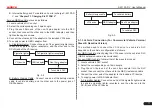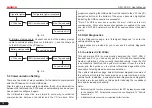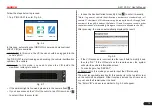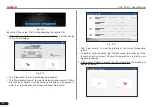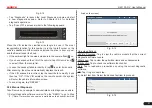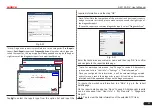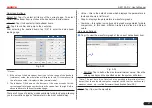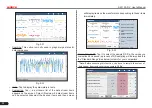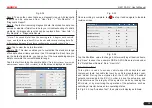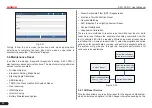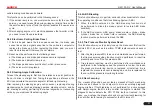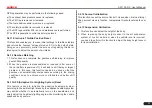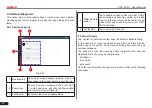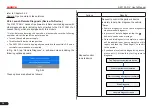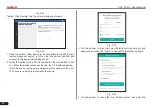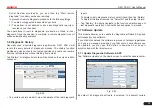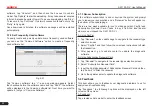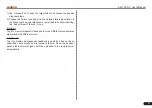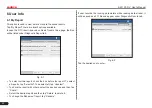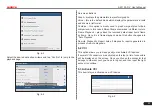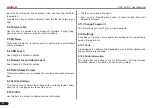
LAUNCH
X-431 PAD V
User's Manual
31
vehicle driving conditions and climate.
This function can be performed in the following cases:
1. If the service lamp is on, you must provide service for the car. After
service, you need to reset the driving mileage or driving time so that
the service lamp turns off and the system enables the new service
cycle.
2. After changing engine oil or electric appliances that monitor oil life,
you need to reset the service lamp.
5.4.2 Electronic Parking Brake Reset
1. If the brake pad wears the brake pad sense line, the brake pad
sense line sends a signal sense line to the on-board computer to
replace the brake pad. After replacing the brake pad, you must
reset the brake pad. Otherwise, the car alarms.
2. Reset must be performed in the following cases:
a) The brake pad and brake pad wear sensor are replaced.
b) The brake pad indicator lamp is on.
c) The brake pad sensor circuit is short, which is recovered.
d) The servo motor is replaced.
5.4.3 Steering Angle Calibration
To reset the steering angle, first find the relative zero point position for
the car to drive in straight line. Taking this position as reference, the
ECU can calculate the accurate angle for left and right steering.
After replacing the steering angle position sensor, replacing steering
mechanical parts (such as steering gearbox, steering column, end tie
rod, steering knuckle), performing four-wheel alignment, or recovering
car body, you must reset the steering angle.
5.4.4 ABS Bleeding
This function allows you to perform various bi-directional tests to check
the operating conditions of Anti-lock Braking System (ABS).
1. When the ABS contains air, the ABS bleeding function must
be performed to bleed the brake system to restore ABS brake
sensitivity.
2. If the ABS computer, ABS pump, brake master cylinder, brake
cylinder, brake line, or brake fluid is replaced, the ABS bleeding
function must be performed to bleed the ABS.
5.4.5 Tire Pressure Monitor System Reset
This function allows you to quickly look up the tire sensor IDs from the
vehicle’s ECU, as well as to perform TPMS replacement and sensor
test.
1. After the tire pressure MIL turns on and maintenance is performed,
the tire pressure resetting function must be performed to reset tire
pressure and turn off the tire pressure MIL.
2. Tire pressure resetting must be performed after maintenance is
performed in the following cases: tire pressure is too low, tire leaks,
tire pressure monitoring device is replaced or installed, tire is
replaced, tire pressure sensor is damaged, and tire is replaced for
the car with tire pressure monitoring function.
5.4.6 Gear Learning
The crankshaft position sensor learns crankshaft tooth machining
tolerance and saves to the computer to more accurately diagnose
engine misfires. If tooth learning is not performed for a car equipped
with Delphi engine, the MIL turns on after the engine is started. The
diagnostic device detects the DTC P1336 ‘tooth not learned’. In this
case, you must use the diagnostic device to perform tooth learning for
the car. After tooth learning is successful, the MIL turns off.

